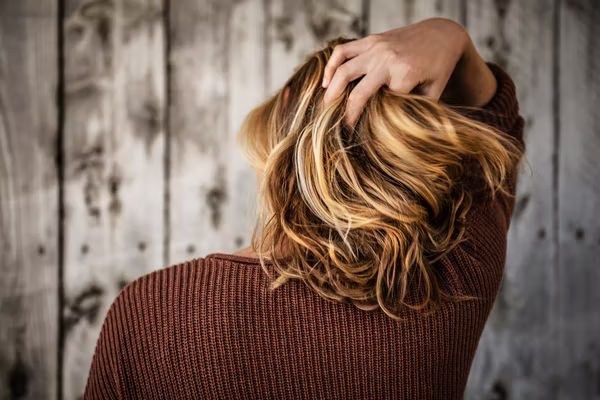Hair loss or low hair growth is a common condition that affects some people more than others. If you are prone to losing your hair, you may want to establish if it is a reversible or permanent condition. Such knowledge is vital to help you prevent future hair loss. Conditions like alopecia, which entails hair loss on your scalp or the whole body, can be temporary or permanent.
Sometimes the causes of losing hair are out of your hands, but not always. Knowing the root of the problem will help you seek remedy and control its severity. Some common causes of stunted hair growth include poor health, a dirty scalp, too much heat, genetics, age, and hormones. You should assess your condition to help you develop solutions.
Poor Health
Poor health can contribute to hair loss or stunted growth. If you have a poor diet and do not exercise, this can lead to less hormone stimulation responsible for hair growth. Check your nutritional intake and exercise habits if they have changed over time to diagnose your hair condition instead of lying unaware on the kivik sofa.
Not getting enough sleep can contribute to hair problems as well. The body needs seven to nine hours of sleep every night, the same way it needs a balanced diet. One factor that can inhibit sleep is unfavorable bedding implements. If you gravitate to your side when sleeping, you may need to check the suitability of your mattress. Get the best firm mattress for side sleepers for a restful night.
Dirty Scalp
A scalp with dirt or excess oil can suffocate the hair follicles and prevent growth. Check your hair cleaning routine to rule out dirty scalp as a culprit to hair loss. The average person needs to wash their hair every two to three days. However, if you have excessively oily hair or flaky scalp, you probably need to increase the washing frequency.
Keep your hair clean, especially at the root, to give your hair room to grow. Identify the best hair cleaning and nourishing products to give your hair a deep cleaning session. Intense activities like exercising make your scalp sweat, enhancing dirt build-up on the hair. You should wash your hair more frequently if you work out regularly.
Too Much Heat
Too much heat damages the hair as it changes the shape of the hair’s keratin strands. You expose your hair to heat damage by using any styling tools that require intense heat. If you have to use the styling tools, buy heat protection products and apply them before exposing your hair to high temperatures.
You can also purchase damage-preventing products or get protein treatments to address hair damage. Establish a routine of using such products frequently for prevention and damage control to avoid hair loss. The ultimate solution is to avoid intense heat treatment for your hair. Keep the hair blower at just enough temperature to dry it without damaging it.
Genetics
Some people have a genetic predisposition for hair loss or thinning. If your condition is hereditary, you cannot avoid hair loss or stunted growth. However, preventative measures can help mitigate hair stunting to an extent, but it is challenging to override genetics completely. There are scalp ointment solutions available over the counter to control the severity of hair loss.
Some people opt for surgical techniques to alleviate hair loss is genetic. If you choose such measures, consult a professional for expert advice. The experts will guide you on the options accessible and advise on the best course of action based on your condition.
Age
Aging contributes to gradual hair loss and stunted growth. As you age, the hair thins and starts to fall out. The process is a natural part of life as the body does not rejuvenate as well as it did in younger years, losing proteins and collagen. The nutrient loss means it takes longer to grow hair that naturally falls off.
However, you can take preventative measures that can help mitigate some aging effects, but not completely. Actions like using conditioners and hair-volumizers, eating protein-rich diets, checking medications you take, etc., can help control hair loss.
Hormones
Sometimes, hormones cause hair loss. When the estrogen and progesterone levels drop, hair thins out and grows slower. Hormones in the body may be causing you to have stunted hair growth, such as the hormonal effects of menopause.
Managing hormones and staying healthy is the best way to optimize hair growth. If you suspect that your hair loss is due to hormones, have a medical check-up to seek remedial action before you replace the bathtub due to blocked drainage. Some hormonal imbalances are reversible through medication, and you can grow back your mane. However, people respond differently to treatment that may be effective in one person and not another.
Get to the Hair Loss Source
If your hair is susceptible to stunted growth and thinning, you must establish the cause. You may end up discovering a solution that completely reverses hair loss. Even if you do not get back your ideal hair state, you can improve your condition and have better health.

